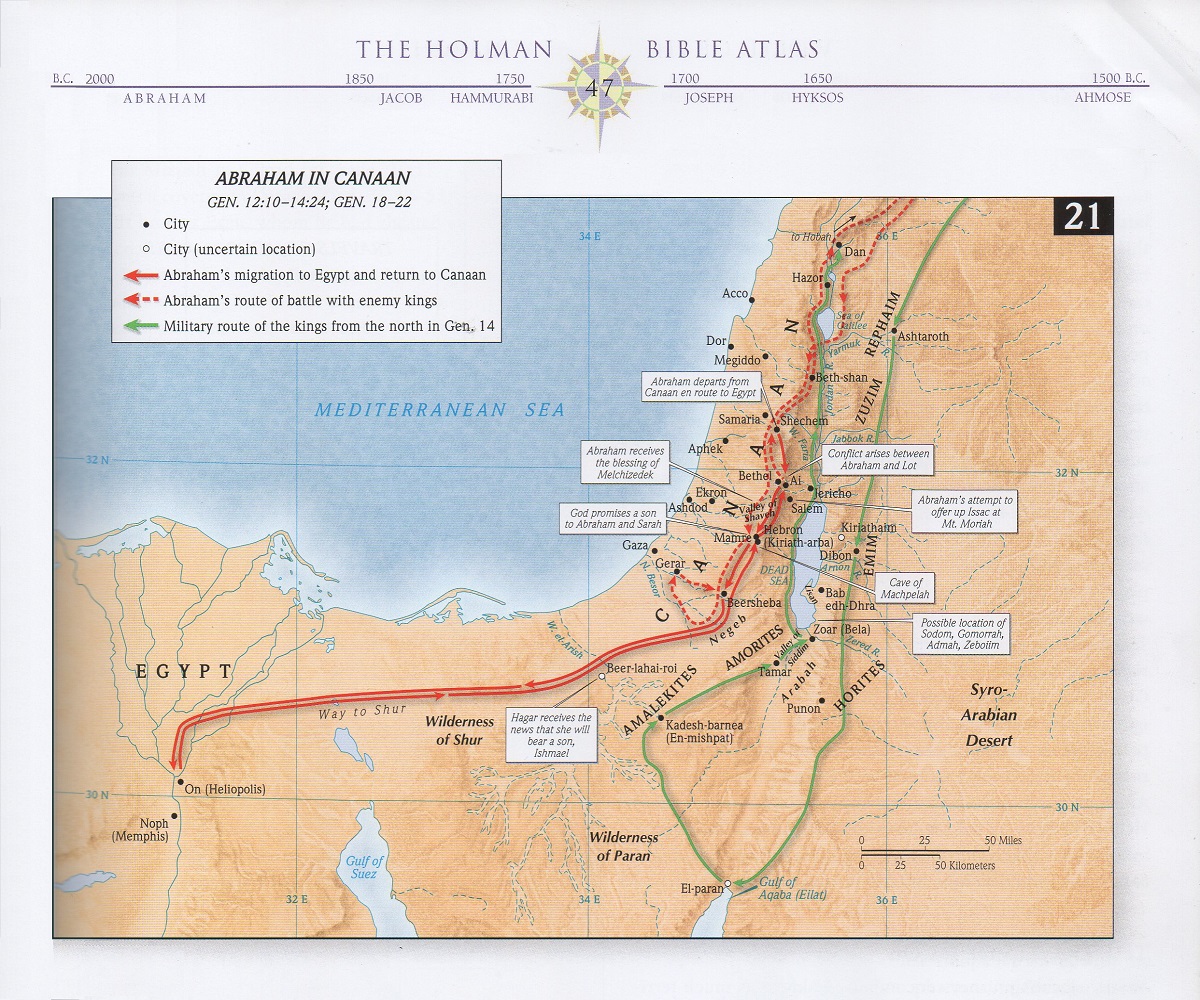Fittingly, Kiriathaim is said to be translated as "two cities". Two different towns named Kiriathaim appeared in the Old Testament opposite each other from the Jordan River.
The better known city named Kiriathaim was taken from Sihon by Moses and the Israelites. It was on the east side of the Jordan River and Dead Sea where the Moabites and Ammonites lived. Sihon, king of Heshbon, previously took
land from those people to form his own kingdom in what would be modern-day Jordan.
The first mention of this city in Genesis 14:5 called it Shaveh Kiriathaim when Abram (Abraham) defeated the 5 Amorite kings who ceptured Lot and his family.
1. At this time Amraphel king of Shinar, Arioch king of Ellasar, Kedorlaomer king of Elam and Tidal king of Goiim
2. went to war against Bera king of Sodom, Birsha king of Gomorrah, Shinab king of Admah, Shemeber king of Zeboiim, and the king of Bela (that is, Zoar).
3. All these latter kings joined forces in the Valley of Siddim (the Salt Sea).
4. For twelve years they had been subject to Kedorlaomer, but in the thirteenth year they rebelled.
5. In the fourteenth year, Kedorlaomer and the kings allied with him went out and defeated the Rephaites in Ashteroth Karnaim, the Zuzites in Ham, the Emites in Shaveh Kiriathaim
6. and the Horites in the hill country of Seir, as far as El Paran near the desert.

Numbers 32:37-38 stated that this city was among the conquered cities that were renamed by the Reubenites while Moses led the Israelites:
33. Then Moses gave to the Gadites, the Reubenites and the half-tribe of Manasseh son of Joseph the kingdom of Sihon king of the Amorites and the kingdom of Og king of Bashan--the whole land with its cities and the territory around them.
34. The Gadites built up Dibon, Ataroth, Aroer,
35. Atroth Shophan, Jazer, Jogbehah,
36. Beth Nimrah and Beth Haran as fortified cities, and built pens for their flocks.
37. And the Reubenites rebuilt Heshbon, Elealeh and Kiriathaim,
38. as well as Nebo and Baal Meon (these names were changed) and Sibmah. They gave names to the cities they rebuilt.
After Joshua led the Israelites into Canaan, the city was stated again as territory alloted to the Reubenites in Joshua 13:19:
15. This is what Moses had given to the tribe of Reuben, clan by clan:
16. The territory from Aroer on the rim of the Arnon Gorge, and from the town in the middle of the gorge, and the whole plateau past Medeba
17. to Heshbon and all its towns on the plateau, including Dibon, Bamoth Baal, Beth Baal Meon,
18. Jahaz, Kedemoth, Mephaath,
19. Kiriathaim, Sibmah, Zereth Shahar on the hill in the valley,
20. Beth Peor, the slopes of Pisgah, and Beth Jeshimoth
21. --all the towns on the plateau and the entire realm of Sihon king of the Amorites, who ruled at Heshbon. Moses had defeated him and the Midianite chiefs, Evi, Rekem, Zur, Hur and Reba--princes allied with Sihon--who lived in that country.
Jeremiah 48:1, 23 began the prophesies against the former inhabitants of that region:
1. Concerning Moab: This is what the LORD Almighty, the God of Israel, says: "Woe to Nebo, for it will be ruined. Kiriathaim will be disgraced and captured; the stronghold will be disgraced and shattered.
...
21. Judgment has come to the plateau-- to Holon, Jahzah and Mephaath,
22. to Dibon, Nebo and Beth Diblathaim,
23. to Kiriathaim, Beth Gamul and Beth Meon,
24. to Kerioth and Bozrah-- to all the towns of Moab, far and near.
Ezekiel 25:9:
8. "This is what the Sovereign LORD says: `Because Moab and Seir said, "Look, the house of Judah has become like all the other nations,"
9. therefore I will expose the flank of Moab, beginning at its frontier towns--Beth Jeshimoth, Baal Meon and Kiriathaim--the glory of that land.
West of the Jordan River not far from Jerusalem (modern-day West Bank), 1 Chronicles 6:76 named another city called Kiriathaim that was given to the Gershonites (Levites from the line of Gershon)
from the Israelite tribe of Naphtali after Joshua led the campaign into Canaan.
1 Chronicles 6:71-76:
71. The Gershonites received the following: From the clan of the half-tribe of Manasseh they received Golan in Bashan and also Ashtaroth, together with their pasturelands;
72. from the tribe of Issachar they received Kedesh, Daberath,
73. Ramoth and Anem, together with their pasturelands;
74. from the tribe of Asher they received Mashal, Abdon,
75. Hukok and Rehob, together with their pasturelands;
76. and from the tribe of Naphtali they received Kedesh in Galilee, Hammon and Kiriathaim, together with their pasturelands.